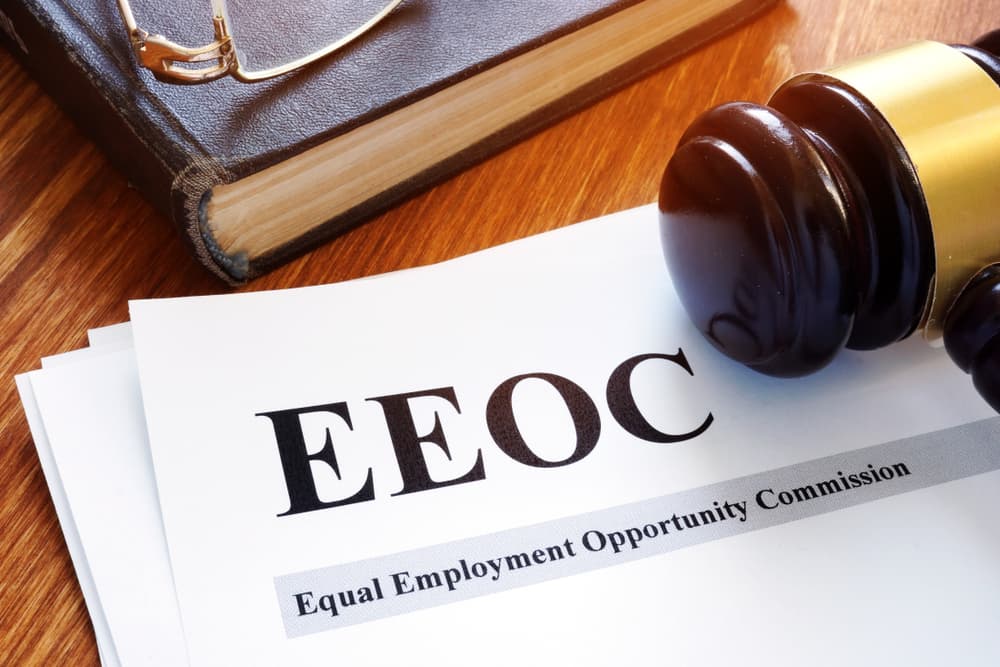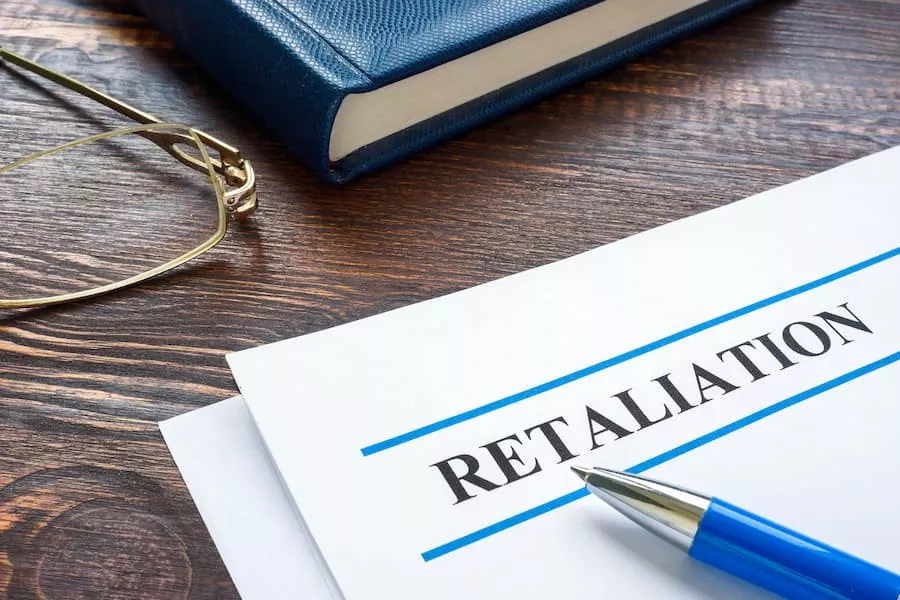Have you ever felt like you were treated differently at work for reasons that seem unfair or hurtful? Maybe you were passed over for a new position because of your age, or a coworker made unkind comments about your disability. In California, the law says you deserve fair treatment at work, no matter who you are.
If you have suffered employment discrimination, you should contact a California employment attorney as soon as possible. Having a knowledgeable discrimination lawyer as an advocate and support, can make a significant difference in your case.
Schedule a Free Case Evaluation
What Does It Mean When Someone Discriminates Against You at Work?

Employment discrimination happens when your boss or employer treats you differently because of who you are rather than how well you do your job.
This different treatment can happen in many ways. Your employer might fire you without cause, deny you the chance to apply for a promotion or cut your hours compared to your coworkers. Even small acts like hearing rude, hurtful comments about your identity can be part of discrimination.
In California, it is against the law for an employer to treat someone unfairly because of traits called protected characteristics. These protected characteristics can include:
- Race or color
- Religion or creed
- National origin or ancestry
- Physical or mental disability
- Medical condition
- Genetic information
- Marital status
- Sex, gender, gender identity, or gender expression
- Sexual orientation
- Age (if you are 40 or older)
- Military or veteran status
- Reproductive health decision-making
In short, the law says your job, work benefits, and work treatment should never depend on these traits.
Which California Law Protects Me from Discrimination?
In California, the Fair Employment and Housing Act (FEHA) — found in the California Government Code, sections 12900 and the following sections—covers most workplace discrimination rules. These laws make it clear: you have the right to apply for, keep, and thrive in your job without facing setbacks due to a protected characteristic.
Key Points of FEHA
- Wide Coverage: FEHA applies to workplaces with five or more employees.
- Protected Groups: It names specific traits employers cannot use to discriminate against you.
- Harassment and Retaliation: The law protects you if you speak up about mistreatment.
- Remedies: If your employer breaks the law, you can get your job back, receive back pay, or even get money for emotional distress.
Who Does FEHA Protect?
You might wonder, “Am I protected if I only work part-time?” or “Does this law apply to me if I only worked at the place for a short time?” Under FEHA, most workers, whether full-time employees, part-time employees, temporary workers, or job applicants, are protected.
Here’s who is usually protected:
- Job applicants: The law prohibits discrimination even during the hiring process.
- Current employees: This includes full-time, part-time, and seasonal workers.
- Former employees: If you are fired or forced to quit because of discrimination, you may still have rights under FEHA.
If you fall into any of these categories and suspect discrimination, you may have a claim under FEHA.
What Are Some Examples of Discrimination at Work?

Discrimination can be easy to spot or hard to notice. Here are some examples:
Paying Employees Differently for the Same Job
If you are doing the same work as someone else but getting paid less because of your gender or your race, that can be pay discrimination.
Not Promoting People in Certain Groups
If you qualify for a promotion but repeatedly get overlooked because of your disability or religion, your employer may be engaging in discrimination.
Firing Someone for Discriminatory Reasons
For instance, if you are let go because of your pregnancy instead of your job performance, that may be pregnancy discrimination.
Harassing Workers Because of Who They Are
If your coworkers or boss make hurtful jokes about your race, sex, disability, or other protected traits and you feel scared or upset, that’s harassment.
Not every unfair act at work is illegal discrimination, though. To qualify as discrimination under FEHA, the employer must base the different treatment on a protected characteristic. For example, if your boss is rude to everyone equally or fires you for missing too many work days, it may not break the discrimination laws.
What Should I Do If I Suspect Discrimination?
- Write It Down: Keep track of dates, times, people involved, and what was said or done. Save emails, text messages, or anything else that can prove what happened.
- Report It Internally: Tell a manager or human resources (HR) in writing. This is an important step. Once your company knows, they can investigate and fix the issue.
- Keep a Copy: If you file a written complaint, keep a copy for your records.
- Look for Witnesses: If any coworkers saw or heard the discrimination, ask if they’re willing to share their accounts.
Reporting discrimination can feel scary, but it’s often the first official step to getting help. If your employer ignores you or you’re worried they might be part of the problem, you can also contact government agencies for support.
Who Enforces Employment Discrimination Laws in California?

The Civil Rights Department (CRD) handles complaints about discrimination at work in California. The CRD can investigate and try to help fix the problem. You can also file a complaint with the Equal Employment Opportunity Commission (EEOC) at the federal level. They enforce federal laws that cover many of the same issues.
You have the right to file a complaint with CRD or EEOC, but there are deadlines. Wait too long, and the court may dismiss your case. That’s why acting quickly matters when you face unfair treatment.
Do I Have to File a Complaint with a Government Agency First?
In most cases, yes. California law requires you to file a complaint with the CRD or the EEOC before the court. This step goes by the name exhausting your administrative remedies. Sometimes, people choose to let these agencies investigate. Other times, they might ask the agency for a “right-to-sue” letter immediately so they can file a lawsuit themselves.
You should talk with a California employment discrimination lawyer if you are unsure of the path to take. They can guide you in deciding whether to wait for an agency investigation or to file a lawsuit immediately.
What Is the Process for Proving Discrimination?
Discrimination cases often use a three-step burden-shifting test, which California courts adapted from federal law. Here’s how it usually goes:
You Must Show a Prima Facie Case
You must show:
- You are in a protected group (like you’re over 40 or you have a disability),
- You were qualified for your job,
- You had something bad happen at work (like being fired, not promoted, or being demoted), and
- A hint or evidence connects the bad action to your protected trait.
Employer Gives a Reason
Your employer must then give a legitimate, non-discriminatory reason for what they did (like they had to fire you because of budget cuts or poor performance).
You Show It’s a Pretext
Finally, you must prove that the employer’s “reason” is an excuse or a pretext for discrimination. You can do this by showing that the employer’s explanation doesn’t make sense or contradicts the facts.
Not everyone uses the words “prima facie” or “pretext” in daily life. These terms require you to show the harm that resembles discrimination and challenge any employer excuses that don’t add up.
What Is Retaliation, and How Do I Spot It?

Retaliation happens when your employer punishes you for standing up for your rights or helping someone else stand up for theirs. For example, if you complain to HR about discrimination and the employer demotes you or cuts your hours, that might be retaliation. FEHA also makes it illegal for employers to punish or fire you simply because you:
- Filed a complaint of discrimination
- Helped with an investigation or lawsuit
- Spoke up about discrimination or harassment at work
Even if the original complaint is not proven, your employer still can’t punish you for making it.
I Was Fired. Can It Be Wrongful Termination?
In California, most employment is “at will,” which means an employer can fire you for almost any reason that’s not illegal. However, if your job ends because you are in a protected class or you reported discrimination, that can be a wrongful termination.
Examples:
- You tell HR you feel bullied for being transgender, and a week later, the employer fires you without giving a reason.
- You file a complaint with the CRD, and suddenly, your employer says you’re not a “good fit” and lets you go despite strong performance reviews.
If you suspect wrongful termination, speaking to someone or seeking legal advice quickly is important.
Should I Gather Evidence of Employment Discrimination?
Yes, saving any evidence that might show discrimination or unfair treatment is a good idea. This can include:
- Emails or Text Messages: Rude comments or instructions that single you out.
- Work Documents: Pay stubs or performance reviews contradict your employer’s claim that you’re “underperforming.”
- Witness Statements: If coworkers see others treat you unfairly or hear comments about your identity, they can support your account of what happened.
- Timeline Notes: Writing down each event, including dates and what was said, improves your recall of details.
Keep these items somewhere safe where nobody can erase or destroy them. Protecting this evidence ensures you have a strong foundation for your case if you need to take action.
What If I Want to Settle Instead of Going to Court?
Many discrimination cases settle before reaching the courtroom. A settlement means you and your employer agree on how to fix the problem, often involving money (back pay or emotional distress damages) or changes in workplace policy.
Reasons to settle might include:
- Saving time and money (lawsuits can be long and expensive)
- Getting faster relief without a trial
- Keeping your situation private
However, there are also reasons people choose to go to court, like wanting a public finding that the employer did something wrong or hoping for a larger award from a judge or jury. An employment attorney can guide you in weighing these options.
What Damages Can I Get If I Win a Discrimination Claim Under FEHA?
If you succeed in a discrimination claim under FEHA, you can receive:
- Reinstatement: Getting your old job back or a similar position.
- Back Pay and Front Pay: Money you lost from being fired or demoted, and future pay you may lose if you can’t get the same kind of job elsewhere.
- Emotional Distress Damages: Compensation for the mental pain you went through.
- Punitive Damages: If the employer acted badly or with malice, a court might punish them with extra money.
- Policy Changes: Employers might also need to change their rules and training to prevent future discrimination.
These remedies exist to make you “whole” again, meaning to fix what you lost because of discrimination. They aim to restore your rights and provide fair compensation for the harm you’ve suffered.
What Happens if I Wait Too Long to Speak Up About a Discrimination Case?

Discrimination claims have time limits. These are called statutes of limitation. In California, you generally have to file a claim with the Civil Rights Department (CRD) within a certain window from the date of the discriminatory action. The same is true for federal claims filed with the EEOC, which also has deadlines. You can lose your right to sue if you miss these deadlines.
This is why it’s so important to act fast if you think you’re facing discrimination. If you’re unsure about your deadlines, talk to a California employment attorney to learn your timeline. Hiring a lawyer will ensure no deadlines are missed.
Reach Out to an Employment Discrimination Attorney for Help
Discrimination can shatter your sense of self and make you question your worth. It can disrupt your career and your mental health. That’s why it’s so important to understand your rights and to know that help is available. Every person has the right to feel safe and valued on the job, regardless of race, age, religion, disability, or any other protected characteristic.
Stay informed about the law. Reach out for help if you need it. And always remember that you are not alone in this fight. There are laws, systems, and caring people ready to stand with you when you decide to stand up for yourself. Taking that first step can make all the difference.